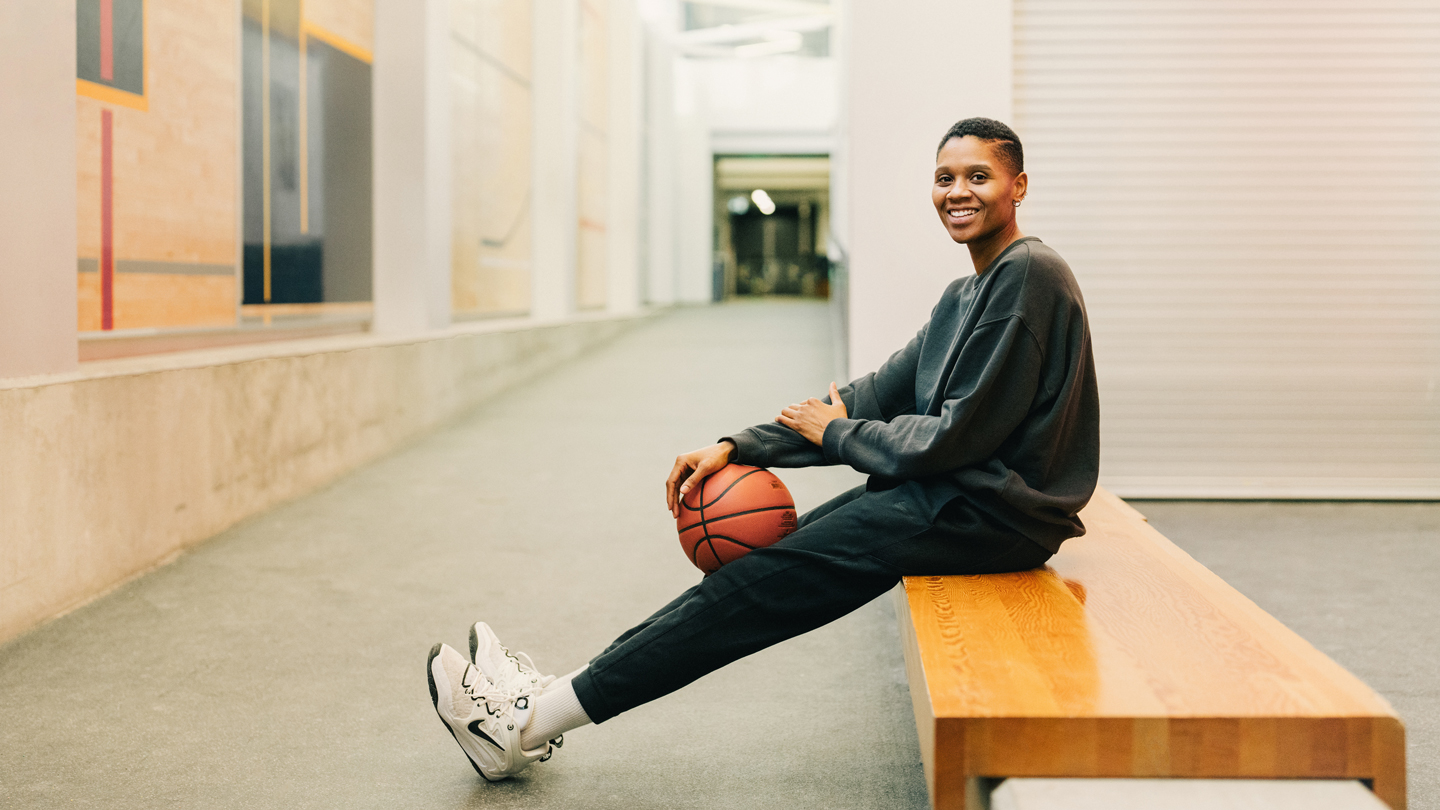
“FEEL SEEN, FEEL SAFE”
F
or more than a decade, Wumi Agunbiade has been a known quantity in Canadian women’s basketball. One of the few players to get recruited to a D1 program after remaining in Canada for high school, she went on to an illustrious NCAA career at Duquesne University before going pro. Agunbiade started her professional career playing a few seasons in Romania, where she averaged 15.3 points and 7.9 rebounds in her most successful season, and helped lead Alba Lulia to the finals of the Romanian Cup. She followed up her time in Romania with stints in Italy and Germany before a knee injury ended her playing career.
A natural leader, when her playing days came to an end, Agunbiade transitioned into coaching, spending time as a junior coach with the Raptors 905 as a part of their mentee coaching program. She then worked as an assistant coach for the Guelph Nighthawks of the Canadian Elite Basketball League prior to taking on her current position as an assistant with the Queen’s University women’s basketball team.